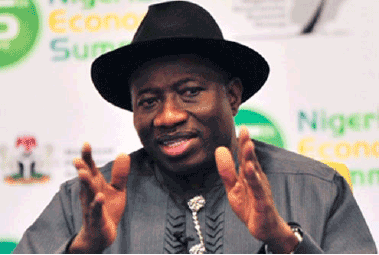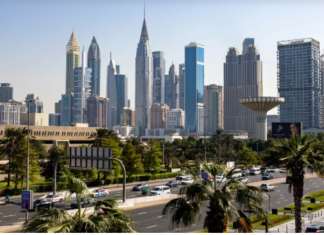The intricate web of secrecy that surrounds Malabu Oil and Gas Ltd, Nigerian Agip Exploration Limited (NAE) (Eni’s Nigerian subsidiary), Shell Nigeria Exploration and Production Company Nigeria Limited (SNEPCO) (Shell’s Nigerian subsidiary), and the Goodluck Jonathan government, over the hazy sale of Oil Prospecting Licence 245 (OPL 245) that belongs to Chief Dan Etete, a felon, and General Sani Abacha’s Petroleum minister, has unravelled.
In unclear circumstances, Etete’s Malabu Oil and Gas Ltd was awarded OPL 245 by General Abacha five days after the company was incorporated.
While the cloudy circumstances surrounding the sale of the oil block to Shell Nigeria and Nigerian Agip to the tune of US$1.1 billion, have pushed both oil giants to persistently deny that they had anything to do with Etete’s Malabu Oil and Gas Ltd in the transaction, but rather the Federal Government, under Jonathan; leaked email transactions between Shell and Agip regarding the sale, have effectively established that both oil giants were in full grasp of the fact that they were entangled in a shady purchase, facilitated by the Jonathan government that did not consider the interest and well-being of the rest of Nigerians, but that of Etete, Jonathan and a few others.
The emails, published by an Italian journalist Claudio Gatti, according to Global Witness, proved that while Shell and Agip worked out this tranche to be wired to Etete’s Malabu, both companies carefully shielded the deal from public and international scrutiny. The emails established that in spite of the claims by both companies that Malabu was not in the picture of the purchase and huge transfer, the two oil multi-nationals worked hand-in-glove in the design, negotiation, and execution of the arrangements to ensure the funds were wired to Malabu through the Jonathan government.
Global Witness, an anti-corruption/transparency which exposes hidden links between demand for natural resources, corruption, armed conflict and environmental destruction, on its website, published an English Language translation of the report, originally published by Gatti.
Reports that broke last Tuesday, from the UK, cited the findings of Italian investigators, that the former president was a direct beneficiary in the deal. In the investigators’ report, former President Jonathan, as an alleged beneficiary was portrayed as “Fortunato,” meaning luck, lucky or good luck in Italian.
Following a request by Etete, that $85 million be released to his company, Malabu, Justice Edis of the Southwark Crown Court, UK, on Tuesday last week, ruled that he was not sure the administration of president Goodluck Jonathan acted in Nigeria’s interest when it approved the transfer of the money to Malabu.
“I cannot simply assume that the FGN, which was in power in 2011 and subsequently until 2015, rigorously defended the public interest of the people of Nigeria in all respects.” The judge further alleged that president Goodluck Jonathan was beneficiary of the payment and was the person Italian investigators referred to by the code name “Fortunato”.
“The suggestion from the wiretaps is that “Fortunato” was implicated and I am told that this was a reference in code (not subtle) to the former president of Nigeria, President Goodluck Jonathan,” the judge said.
On March 7, 2011, six weeks before the deal was sealed, a draft escrow agreement was drawn up among the Federal Government of Nigeria, Malabu Oil and Gas Limited, Nigerian Agip, Shell Nigeria and the United States-based J.P. Morgan Chase – the latest being the escrow agent, that will receive the fund and transmit it to Etete’s Malabu Oil and Gas Limited, through the federal government.
As against the denials, some of the leaked emails stated that: “Pursuant to the Resolution Agreement, NAE, on behalf of SNEPCO and NAE, has the obligation to wire transfer to the Escrow Account an amount of XXX million US Dollars ($XXX) to the benefit of FGN, within five (5) days from the date of execution of the Resolution Agreement.
“(D) The above amount shall be released by the Escrow Agent to MALABU on behalf of FGN pursuant to this Agreement, upon receipt of the Completion Notice.”
In another email conversation between senior executives of both companies, dated, March 30, 2011, Shell in a bid to further screen the involvement of both companies in the payment, proposed “A Structure” for the deal. The Shell-proposed new structure, was later agreed by all the parties involved, in the form of separate “Resolution Agreements” (RAs), as it presented them as making the payment to the Federal Government of Nigeria, FGN, and not to a questionable private entity. The email from an Eni manager to Shell managers establishes this: “In general terms, Shell’s proposal to divide the RA in two separate agreements addresses part of Eni’s concerns, although it will need some re-work on our side. More specifically: […]
– FGN is envisaged to be the one paying Malabu directly. There is no need to refer to the Escrow Agreement no2, NAE paying to FGN etc; FGN shall pay Malabu and the fact that the money shall come to FGN from NAE is another matter dealt with under RA2.
– In general, we request to de-link, as much as possible RA 1 from RA 2, so that completion of RA 2 is not subject to the transaction under RA 1. […]”
Also, minutes of a meeting held on April 14, 2011, which was two weeks before the final deal for OPL 245, confirm that these resolution agreements, regarding the deal, were discussed and agreed with all the parties present including Malabu representatives in the room. According to the minutes, the attendees at the meeting included; Malabu representatives Rasky Gbingie, Dr Dele Adesina, Shell managers Peter Robinson and Nike Olafimihan, Eni managers Roberto Casula, Vicenzo Armanna and Giorgio Vicini, the then Nigerian attorney-general, and minister of Justice, Mohammed Adoke, some officials of the Ministry of Justice and those of the Department of Petroleum Resources. Issues discussed and agreed on, according to minutes, included:
“Discussion of draft OPL 245 agreements
The parties discussed the New Structure of agreements, in particular with respect to the comments from DPR.
Parties agreed to have 3 separate agreements and discussed the body of the text.
Finally, parties agreed on the final wording as per attached documents.
Way forward
The 3 agreements have been initialled by the respective parties. Parties to define the date for execution of the agreements.
Also, an email from Eni to Shell, a day before the OPL 245 deal was signed, showed that Eni and Shell discussed whether Malabu would be in the same room to sign the agreements at the same time. The email included the line:
“Would Malabu attend the meeting as well? The resolution agreement with Malabu shall be signed at the same date, as well as the Shell resolution agreement. Is this going to happen?”
When Global Witness confronted Eni and Shell that they had been dishonest in their involvement in the payment to Malabu, Eni replied by saying “we believe the interpretation in your letter is erroneous” and, according to Global Witness report, “repeated that their payment was made to a Federal Government of Nigeria bank account and they did not sign any agreement with Malabu. Global Witness further reports “that Eni commissioned an external audit of the case from a US law firm which it has shared with investigators and it claims did not find evidence of illegal conduct. When asked for further details Eni has failed to provide the terms of reference, detailed findings or any supporting evidence for this audit’s findings.
“Shell did not respond to questions about this new evidence. Previously, Shell has insisted that they did not pay Malabu and in a response from April 2015 said, ‘We do not agree with the premise behind various public statements made by Global Witness about Shell companies in relation to OPL 245’.
-Leadership














